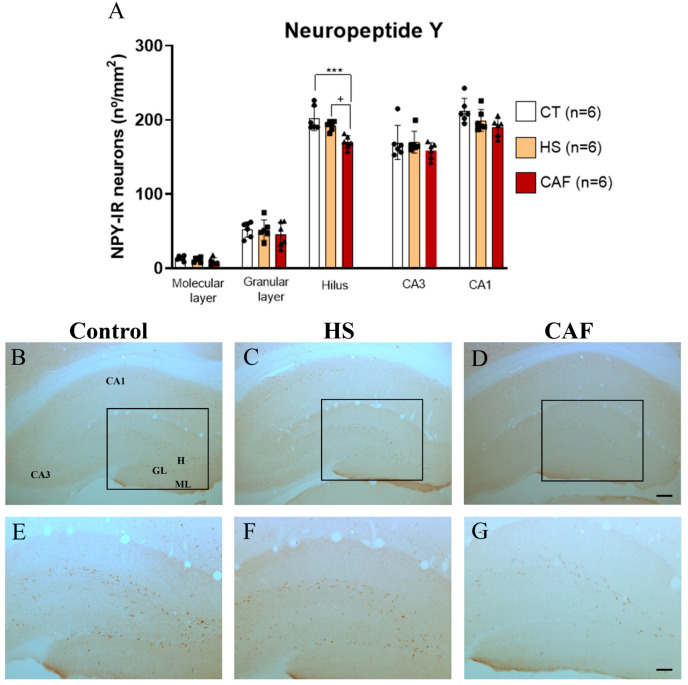Figure 5.
Histogram (A) showing the mean ± SD areal density of NPY-IR cells in the DG, CA3, and CA1 regions, with 6 animals per group. The circles represent the value for each animal in the control group, squares represent the value for each animal in the HS-treated group, and triangles represent the value for each animal in the CAF-treated group. There was a significant reduction in the number of NPY-IR cells in the hilus of CAF-treated rats compared to HS-treated and control rats. There were no significant effects of diet on any of the other HF regions. *** p < 0.001, CAF-treated rats versus control rats; + p < 0.05, CAF-treated rats versus HS-treated rats. CT, control; HS, high-sugar; CAF, cafeteria. Representative photomicrographs of coronal sections through the HF of control (B,E), HS- (C,F), and CAF-treated (D,G) rats immunostained for NPY. The boxes drawn in (B), (C), and (D) delineate approximately the regions of the DG area shown at higher magnification in (E), (F), and (G), respectively. High-power photomicrographs of the DG of control (E), HS- (F), and CAF-treated (G) rats. ML, molecular layer; GL, granule cell layer; H, dentate hilus; CA3, pyramidal cell layer of CA3 hippocampal field; and CA1, pyramidal cell layer of CA1 hippocampal field. Scale bar: 200 µm in (B–D) and 100 µm (E–G).

